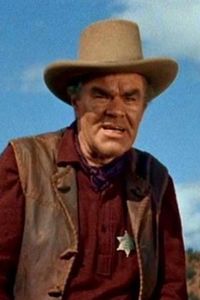George Mathews, a burly and craggy-faced tough guy actor, was raised in Manhattan and educated in Brooklyn.

George Mathews
Deceased · Born: Oct 10, 1911 · Died: Nov 7, 1984

Deceased · Born: Oct 10, 1911 · Died: Nov 7, 1984
George Mathews, a burly and craggy-faced tough guy actor, was raised in Manhattan and educated in Brooklyn.
Career


















